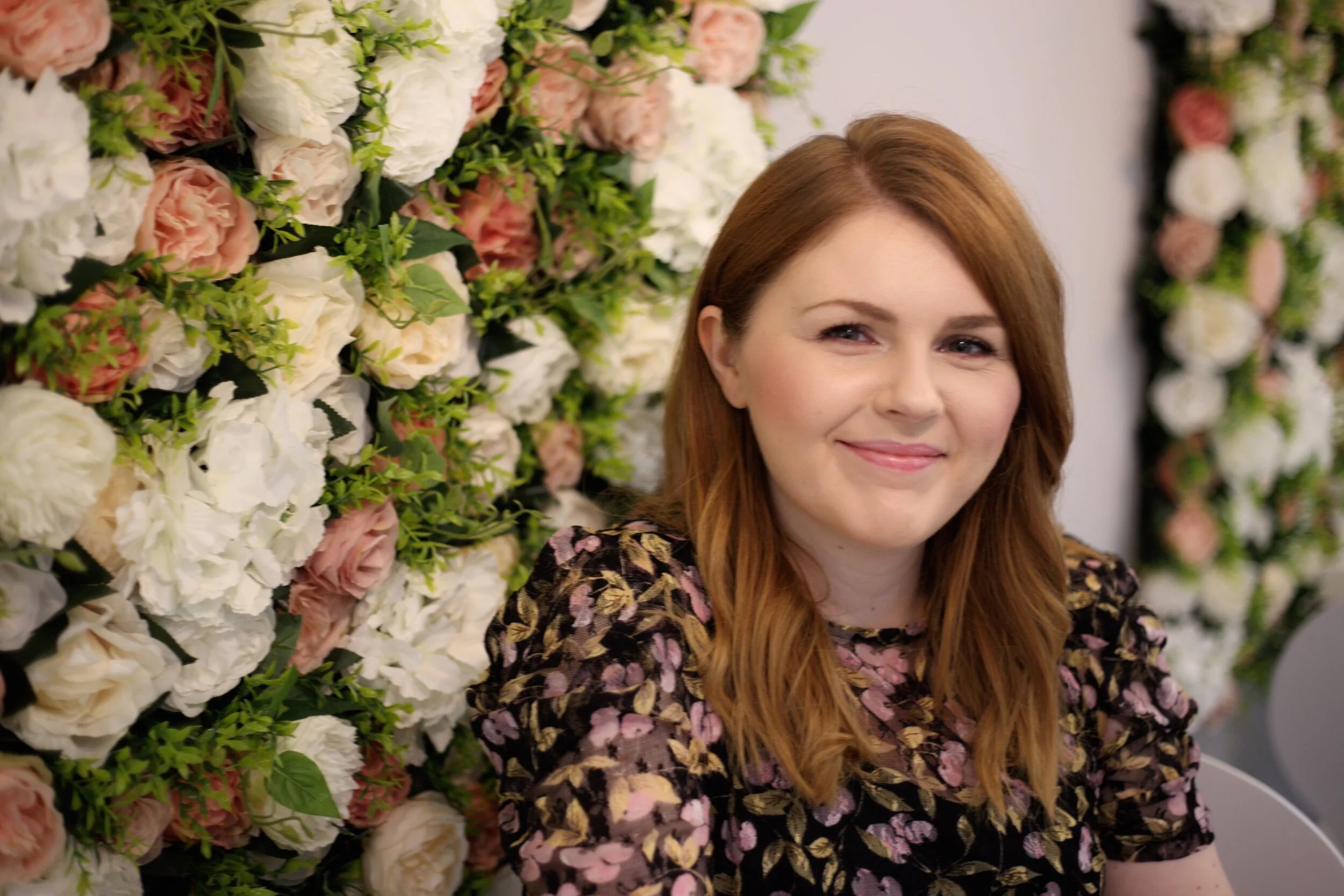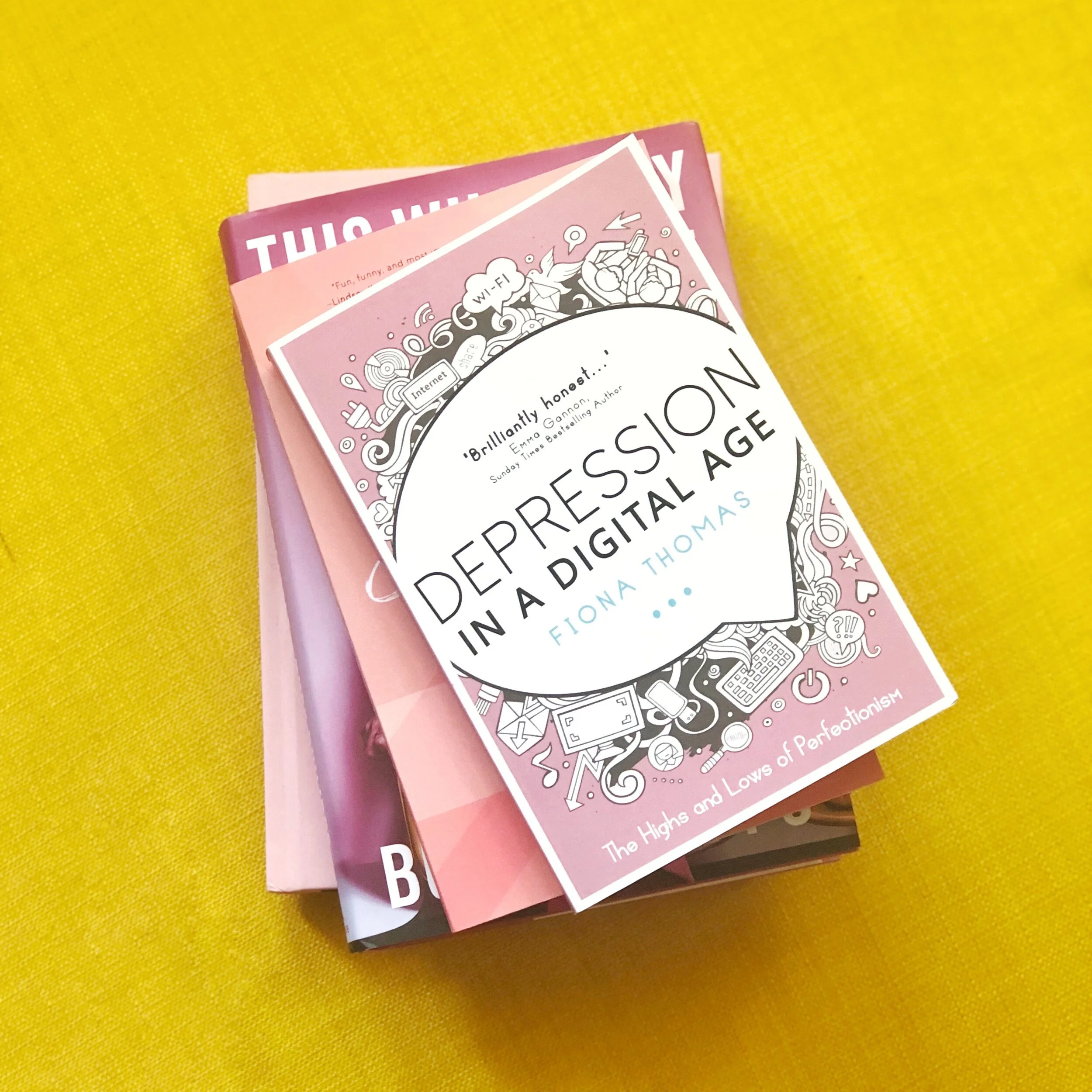An Interview with Fiona Thomas, Author of Depression in a Digital Age
(Contains affiliate links, which means I may receive a small commission at no extra cost to you)
Fiona grew up in the 80s, a simpler time, perhaps, without Facebook, iPhones and presidents causing wars on Twitter. But by her mid twenties, she was caught up in a spiral of perfectionism, anxiety and depression - no longer able to function and signed off from work. Fiona’s brilliant book, Depression in a Digital Age, details her journey from childhood to university, through to a breakdown during her early career. Turning to the internet for help, the digital world played a huge part in Fiona’s recovery and helped her to rebuild her life and regain her confidence.
Now an author and freelance writer, I spoke to Fiona to learn more about the woman behind the words.
What was the moment that you decided, ‘I want to write a book about this’?
I was sitting on a sun lounger in Menorca with my mum! I was taking the first holiday I’d had in a long time after getting really fanatical about blogging and it felt like I needed something new to sink my teeth into. I’d just read Emma Gannon’s Ctrl, Alt, Delete and Bryony Gordon’s Mad Girl and I felt like my personal story took elements from both memoirs. Reading their books was almost like a permission slip to write my own.
I admire how open and honest you are about your mental health struggles online, but I’m wondering how you know what to share and what to keep private. How do you set your boundaries?
I guess I’m pretty much up for sharing everything other than anything to do with my family or my marriage. Most of what I talk about is stuff I know affects other people and I instantly better knowing that when I share stuff other people’s experiences are validated.
Is there anything that you’ve shared in the past and now regret?
Yes! When I first started blogging I was talking a lot about my health and fitness journey and I wrote blog posts about how to give up carbs and lose weight. I didn’t realise I had an unhealthy relationship with food and exercise at the time and now I feel awful having possibly encouraged other people to follow in my footsteps. I’ve deleted all those blog posts now!
In the book, your GP is only mentioned very briefly. Have you had any medical treatment that’s helped you along the way?
I saw a counsellor when I was first diagnosed and that was helpful to have someone monitoring my progress over the course of a year. I also went to a group CBT course which to be honest, I absolutely hated. I’ve just been prescribed another one and I’m going to give it a shot again because I really appreciate having these services on offer to me. Taking medication was a big help for me too.
How are you feeling right now? Are there any particular struggles that you have?
I work from home as a freelance writer so I’m always learning to juggle life and work. On one hand it’s great because I don’t have to commute and I can take appointments or do housework during the day, but on the other hand taking time off is a struggle because I often have deadlines and work that can’t be passed on to another person. I’m writing my second book on this topic though, (Out of Office: How to ditch the 9-5 and be your own boss) so I’m learning lots of techniques to help with this!
For someone who hasn’t experienced any mental health problems themselves, it can be difficult to understand how it feels to be mentally ill. Could you explain to my readers what depression and anxiety feels like to you?
Depression is a feeling of utter hopelessness. The kind of sadness that is very intense, very dark, and doesn’t subside when you do the things that stereotypically cheer you up. I feel like once you’ve lifted the curtain into depression you never forget how it feels, and you live in constant fear of seeing it again.
Anxiety is very physical for me. It makes me clench my jaw, hunch my shoulder, avoid eye contact and makes me mute on occasions too. At night I often feel it in my chest, like I have a weight resting on there that I can’t shift.
How was your experience of writing the book? What was the hardest chapter for you to write?
I found writing the chapter about the death of my gran the hardest. Partly because I’ve never written about it before and partly because I wanted to do her justice. I knew that my family would have to read it back so there was a lot of internal pressure to recall the facts accurately and sensitively. Overall I found the process therapeutic, especially thinking about my early years and life before the internet.
Something that I really relate to is how you’ve made so many friends online - I have a history of social anxiety and it’s what I did when I first moved to London! What advice do you have for people who are looking to find a community online?
I would say start by being yourself. Don’t pretend to be someone you’re not, because the internet is the perfect place to find people who are into the same things that you are. Look for local Facebook groups, or see if your favourite podcast has one. Start with a niche interest and find the online communities associated with that, because you’ll be certain to have something in common with the people in the groups.
Meeting up with internet friends can be a very anxiety inducing experience, do you have any tips for people who want to give that a go?
I would say get to know people online first, don’t jump into a real life meeting until you’re ready. Definitely do it as part of a larger event if you can. For example, if you’re both into writing suggest going to a writing workshop together or a book club. This gives you a common goal and also the safety net of being in a public place and around other people.
Do you have a favourite social media platform? Where’s your happy place on the internet?
Oh Instagram for sure. I met most of my best friends there and it’s my version of a break room - because I work from home and it’s where I go when I want to have a gossip or a moan!
What are you up to now? Do you have any exciting projects coming up? I heard that there might be a new book in the works…
Yes, I’ve almost finished my second book Out of Office which is out in August. It’s a practical guide to getting into freelancing, something which I know a lot of people with mental illness would love to try. I’m hoping that people will feel inspired to give their side hustle a go and create a work-life balance that helps them thrive. Traditional work environments just aren’t that accommodating for people with mental illness but I hope one day that will change.
And lastly, I’d love to hear about some of your mental health book recommendations!
Mad Girl by Bryony Gordon, This Will Only Hurt a Little by Busy Philipps, Chase the Rainbow by Poorna Bell, and Cheer Up Love by Susan Calman.
Fiona’s fantastic book is on sale now, buy a copy for yourself here.

